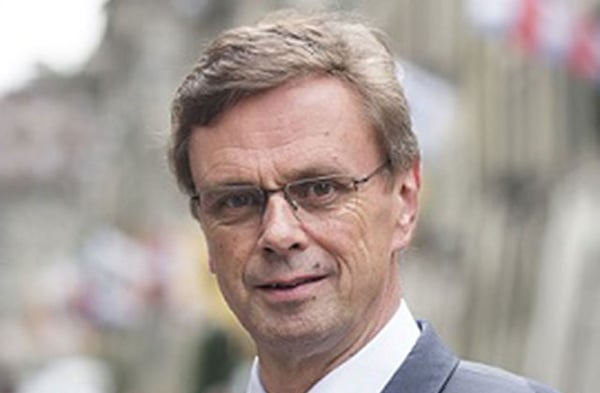- Segments
- Products and solutions
- Products and solutions
- Broadband
- Devices and accessories
- Applications
- Control Rooms
- TETRA and Tetrapol
- Customers
- Ecosystem
- How to buy
- Blog
- EN
“We must build greater agility into legislation. When a law is made it is typically expected to last for 20 years or longer. But this does not allow for the rapid development of society. I am an optimist that we can create laws with the necessary flexibility and then convince the MPs and government to pass them.”
The commission has the responsibility for preparing and amending laws to ensure the public safety and security forces can rely on secure critical communications in the future. We prepare the required laws and then present them to government and Parliament for approval.
The two main challenges we face are securing the frequencies we need to support future communications and gaining the necessary financial support.
Changes are needed to meet the new demands of the public safety organisations. Currently they have only the Polycom network for their communications, but they need secure broadband communications for the future. This is the major driver of change at this time as the agencies are convinced it is necessary to be able to transmit large amounts of data to support their work.
Another major task we face is to achieve a strategic overview for the entire country. The situation in Switzerland is very complicated with 26 Cantons that each has its own police force. A police force in one Canton will know its local situation but it cannot seamlessly collaborate with the other Cantons. The same is true for the various fire brigades in their municipalities.
This is a difficult challenge for many reasons, and often because people are naturally cautious about giving out information. But a nationwide overview of critical situations is vital.
The speed of digital transformation is another driver and currently we are discussing how 5G could help us with that. This means we will need to decide how to work with one of the three Swiss communications service providers.
That’s a good question. If the government builds a new network itself then it must pay the construction and other costs. If we work with a service provider then the costs would be lower, but then we must depend on the provider. We would need to find a way to guarantee this would work into the future.
There are differing views on this. The more liberal free market thinkers are comfortable with working with a service provider. Others are concerned about the risks of this approach and are aware of the history of the Polycom network which has seen changes of suppliers over the years, making it a more complex proposition. When we brought the Polycom 2030 project to upgrade the Tetrapol network to the Parliament, there were some members who thought that we should build the radio network ourselves, which is of course not feasible.

We must build greater agility into legislation. When a law is made it is typically expected to last for 20 years or longer. But this does not allow for the rapid development of society that we see today and in the future. If laws are not open to allow changing demands then it must be changed after just a few years, which is difficult.
Laws must be more flexible. But many members of Parliament want laws that address every thinkable development and this is no longer possible. I am an optimist that we can create laws with the necessary flexibility and then convince the MPs and government to pass them.
Take a look at the 15 most interesting observations from all the interviewees gathered into a printable document. Get the pdf and print out the quote that most inspires you -
The views and opinions expressed herein are those of the interviewee and do not necessarily reflect the official policy or position of Airbus.
Hans-Jürg Käser, is president of the Federal Commission of Telematics in Switzerland, having formerly been a member of the Bernese Canton Government, police and military director and for the last six years president of the Conference of Cantonal Judicial and Police Directors. The Federal Commission of Telematics is responsible for addressing the critical communications needs of government and public safety agencies including the police, fire and border security services which use the nationwide Polycom Tetrapol network for critical communications.
The Polycom network was rolled out in 2000 and currently serves 55,000 users, including cantonal and federal police forces, firefighters, rescue workers, public protection personnel, border guards and the army.

Hans-Jürg Käser, President of the Federal Commission of Telematics in Switzerland